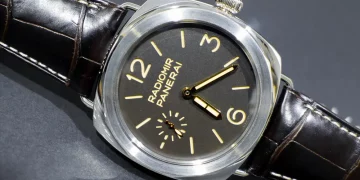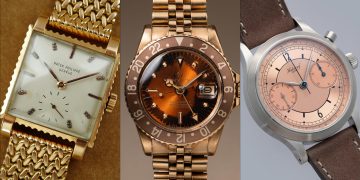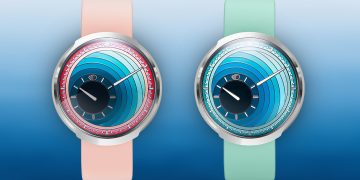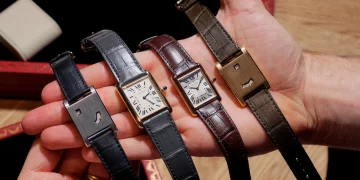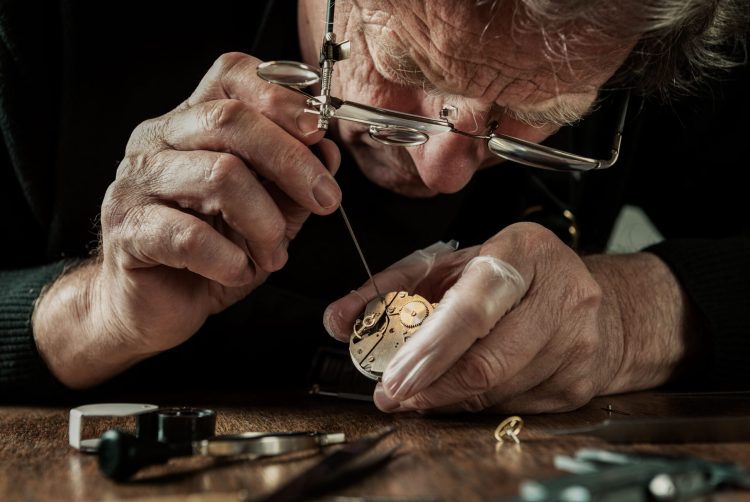Choosing a reliable and professional watch repair service is crucial to ensuring that your luxury timepiece or daily wear watch remains in optimal condition. Whether your watch requires routine maintenance, battery replacement, or a complete overhaul, the expertise of the technician performing the work is key to preserving your watch’s value, accuracy, and longevity.
Unfortunately, not all watch repair shops are created equal. Some may lack the proper expertise, tools, or genuine parts to provide quality service. In this guide, we’ll explore the essential aspects of a professional watch repair shop and offer tips on how to spot a reputable service provider.
1. Watchmaker Qualifications: Look for Certifications and Experience
A certified watchmaker is a trained professional who has received specialized education in watch repair, including advanced mechanical movements, quartz technology, and luxury watch servicing. When choosing a repair shop, always inquire about the qualifications of the technicians.
Professional Indicators:
- Certification and Training: Look for watch repair services that employ Swiss-trained watchmakers or those certified by recognized organizations like the American Watchmakers-Clockmakers Institute (AWCI) or the Swiss Watchmaking Association.
- Experience with Specific Brands: For luxury or complicated watches (like Rolex, Omega, Patek Philippe, or Audemars Piguet), it’s essential that the shop has experience working with those specific brands. Brand-specific certification may be available for some shops, especially for high-end watches.
- Specialized Training: Many luxury watch brands offer authorized training programs for technicians. An authorized repair service with these certifications shows that the watchmaker is trained to use proper techniques and genuine parts.
Red Flags:
- No Certifications or Experience: Avoid shops that cannot provide proof of professional training or certifications. If the technician claims they have experience but cannot provide any formal education or references, this is a warning sign.
- Generalized Expertise: Watchmakers who claim to repair any type of watch but have no experience with high-end or specialized models might not be equipped to handle the complexity of a luxury watch.
2. Use of Genuine Parts vs. Aftermarket Parts
One of the most important aspects of professional watch repair is the use of genuine parts. Non-genuine, aftermarket parts can negatively affect your watch’s performance, aesthetic quality, and future resale value.
Professional Indicators:
- Genuine Parts: A reputable repair shop will always use original parts sourced directly from the brand or a trusted supplier. This ensures the highest level of quality and keeps the watch’s integrity intact.
- Transparency: A professional repair shop will be transparent about the parts they use. They will inform you if they are using aftermarket parts and why (e.g., to keep costs down), but they will typically recommend genuine components for the best repair outcome.
Red Flags:
- Use of Aftermarket Parts without Disclosure: If a shop uses non-original parts without informing you, this is a major red flag. Aftermarket parts may not fit properly, reduce accuracy, and even void the manufacturer’s warranty in some cases.
- Lack of Transparency: If the shop is unwilling or unable to provide clear information on the parts they use or their sourcing, it suggests they might not prioritize quality or authenticity.
3. Reputation and Customer Reviews: Trust What Others Are Saying
A well-established watch repair shop will typically have a strong reputation and positive customer feedback. Online reviews, word-of-mouth, and recommendations from other watch collectors can help you assess the trustworthiness of a service provider.
Professional Indicators:
- Positive Reviews: Look for shops with positive reviews on platforms like Google, Yelp, or specialized watch forums. Reviews from real customers will give you insight into the quality of service, customer care, and repair outcomes.
- Recommendations from Watch Communities: If you’re unsure about a repair shop, ask for recommendations from watch communities, social media groups, or forums. Fellow watch enthusiasts often share their experiences and can guide you to trusted technicians.
- Clear Warranty Terms: A professional repair service will offer a warranty on their work. This could range from a 6-month to 1-year guarantee, depending on the nature of the service. The shop should also be open to free re-evaluation if the repair does not meet expectations.
Red Flags:
- Lack of Reviews: A shop with no online presence, reviews, or word-of-mouth reputation should raise a red flag. Genuine watchmakers typically have a solid online footprint.
- Negative or Unresolved Complaints: Be cautious if there are consistent complaints about poor customer service, inaccurate repairs, or overcharging. Look for shops that address these issues openly.
4. Quality of Equipment and Cleanliness of the Shop
A professional repair shop will have clean, organized, and well-equipped workspaces. This not only ensures quality repairs but also demonstrates that the shop adheres to the standards required for maintaining and fixing high-precision timepieces.
Professional Indicators:
- Specialized Tools: Look for repair shops with a clean, well-organized workspace and the correct tools for servicing watches. High-end shops will have tools like cleaning machines, calibration equipment, and microscopic inspection tools.
- Clean Environment: A watch repair workshop should be dust-free and have climate-controlled storage for delicate movements and parts. Watchmaking is a delicate process, and a well-maintained workshop reduces the risk of damage or contamination.
Red Flags:
- Unprofessional Appearance: If the shop looks disorganized, dirty, or lacks the proper equipment, it may be a sign that the technicians are not taking the necessary care with your watch.
- Improper Tools: If the technicians use basic tools that are not suited for handling delicate parts, your watch might not receive the proper level of attention or care.
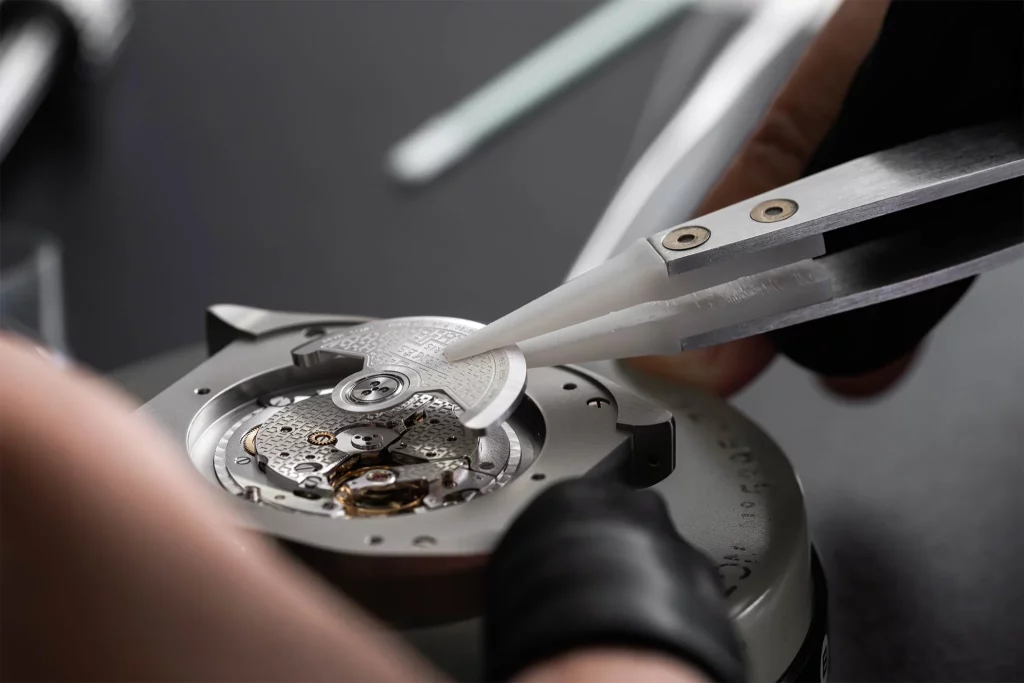
5. Timeframe and Communication: Professionalism in Service
A trustworthy repair service will not only fix your watch with skill but will also maintain good communication throughout the process. An accurate timeframe for the repair and clear cost estimates are essential parts of a professional service.
Professional Indicators:
- Transparent Estimates: Before beginning any repair, a professional repair shop will provide you with a clear, upfront estimate of costs, and they will stick to the estimate unless unexpected issues arise.
- Clear Communication: A reputable shop will keep you informed about the progress of the repair. They should provide updates when needed, especially if there are any delays or complications.
- Reasonable Timeframe: Professional shops will provide you with a reasonable timeframe for repairs, based on the complexity of the work. High-end repairs might take longer, but you should have a clear understanding of when your watch will be ready.
Red Flags:
- No Timeframe: If the repair shop gives vague or unhelpful answers about how long the repair will take, it may indicate a lack of professionalism or poor organizational skills.
- Unclear or Unjustified Pricing: Avoid shops that do not provide transparent pricing or give you surprise fees once the work is completed. A reputable repair shop will give you an accurate estimate and stick to it.
6. Cost: Is the Price Reasonable for the Service?
While the cost of repairs will vary depending on the brand and type of service, it’s important to ensure that the price is fair and reflective of the quality of the work.
Professional Indicators:
- Fair Pricing: A professional shop will offer pricing that reflects the level of service and the quality of parts being used. Expect to pay a premium for luxury watch servicing, but the price should match the complexity of the repair.
- No Overcharging: A reputable repair shop won’t overcharge for repairs or services that could be done quickly and easily.
Red Flags:
- Excessive Costs: If the repair shop provides an estimate that seems unusually high or low, ask for a breakdown of the costs. Extremely low prices may indicate poor workmanship or the use of non-original parts, while excessively high prices may indicate an overcharge for standard repairs.
Conclusion: Make Informed Decisions for Your Watch’s Health
Choosing a professional and reliable watch repair service is essential to maintaining the performance, aesthetic quality, and value of your timepiece. By focusing on certifications, genuine parts, reputation, and quality of service, you can ensure that your watch receives the best possible care. Whether it’s a simple battery replacement or an intricate overhaul, a trusted technician will not only restore your watch but also maintain its legacy for future generations.







